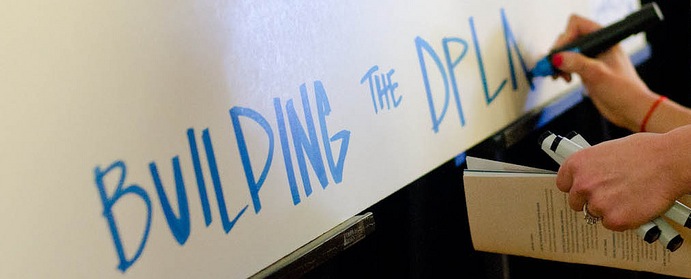>> http://dp.la/about/map <<
This version is designed to build on the experience of the Europeana Data Model (EDM). In addition, it incorporates feedback from the DPLA community and digital hub pilot participants to create a balanced framework that allows us to accommodate existing and emerging data models for library, archive, and museum resources.
DPLA MAP V3 is targeted towards exposing contributed metadata via the DPLA API in the April 2013 DPLA public release. We anticipate continuing to evolve this model over time in response to ongoing community input and to extend the functionality provided by DPLA in its API and its public portal.
DPLA has chosen to publish this documentation even as we are beginning work on the formal specification in RDF of the DPLA class and properties. This is, in part, to allow time to gather additional feedback from the community. A preliminary release of the RDF schema is available at http://dp.la/about/schema.
The DPLA MAP V3, and the accompanying RDF schema, is based, in part, on response from and conversations with the DPLA community. The work to implement the re-envisioned schema was performed by a dedicated team in the U.S.:
- Jeffrey Licht, Partner, Pod Consulting
- Jenn Riley, Head, Carolina Digital Library and Archives, The University of North Carolina at Chapel Hill
- Amy Rudersdorf, Assistant Director for Content, DPLA
- Dr. Richard J. Urban, Assistant Professor, College of Communication and Information, School of Library and Information Studies, Florida State University
With gratitude, we also recognize assistance from our friends in Europe:
- Robina Clayphan, Interoperability Manager, Europeana and The European Library
- Antoine Isaac, Scientific Coordinator, Europeana
While feedback is encouraged, the current version is considered a stable release through spring 2013.
